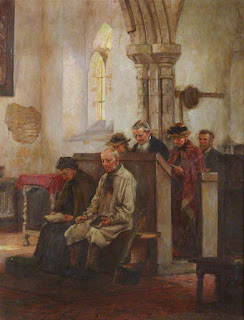The first Lord's Prayer at Mattins and Evensong: "endearing sense"
Whatever may have been the reason for prefixing the Confession, Absolution, &c., to the Lord's Prayer, the propriety of the addition cannot be disputed. Till we had confessed, and repented of our sins, we could not, in the endearing sense, in which we now use the words, call God our Father. And before we had his promise of pardon and absolution, we could not call him so with comfort.
When the church prefixed the preceding preparatory parts to the daily service, and directed the Lord's Prayer to be said after them, the certainly did not mean this appointment to be understood, as a disparagement of the Lord's Prayer. It is, on the contrary, a mark of her extreme reverence for this divine form. Though the Lord's Prayer does not occupy the foremost place, in point of order, yet it stands in the beginning of our service; and is, in the church of England, what it was, in the primitive church of Christ, the foundation and basis, on which the superstructure of her other prayers is built. The constant use our church makes of it, rehearsing it a second time, in her morning and evening prayer, and repeating it in every one of her offices, is a sufficient proof of the sense she entertains of its excellence and efficacy.
The compilers of our Liturgy were not ignorant, that the offering up of this prevailing supplication, with true devotion, and zeal of heart, affords to God that glory, to the weakest man that aid, and to the most perfect that solid comfort which is unspeakable.
(The painting is William Teulon Blandford Fletcher, 'The Sabbath Day', 1916-17.)




Comments
Post a Comment